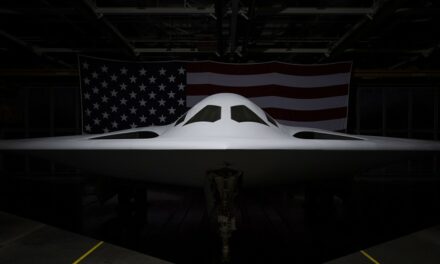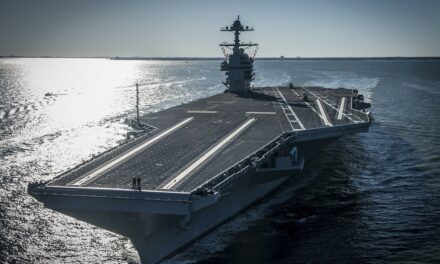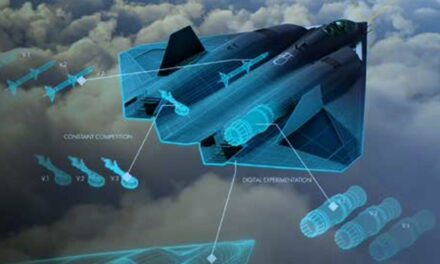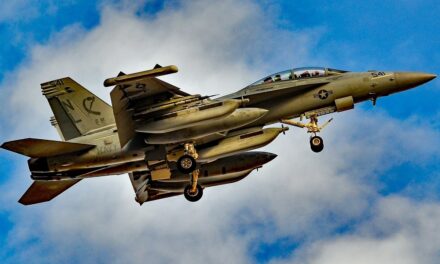We support our Publishers and Content Creators. You can view this story on their website by CLICKING HERE.
Key Points and Summary: Donald Trump’s second presidency begins amidst global turmoil, with crises demanding urgent attention. Top priorities include pursuing a ceasefire in the Russia-Ukraine War to stabilize global politics and trade, addressing instability in the Middle East through military coordination, and managing Venezuela’s political chaos to mitigate migration and energy shocks.
-Trump faces international distrust due to his unpredictable policies and transactional diplomacy, threatening global economic stability. Balancing the dismantling and reforming of the liberal international order will test Trump’s vision.
-Success hinges on Trump’s ability to leverage lessons from his first term and focus on pragmatic, effective foreign policy decisions.
Donald Trump’s Foreign Policy Priorities for 2025: A Closer Look
Donald Trump is set to begin his term as the 47th President of the United States at a moment of international turmoil. Wars rage in Eastern Europe and Central Africa. The Middle East remains in its characteristic state of chaos. Simmering crises in the Western Pacific and Latin America demand attention.
That some of these problems may be the legacy of failures of Trump’s first administration is irrelevant; they are problems that the President will need to deal with in order to carry out a more successful foreign policy than Trump 45. Here are the five areas that will require the attention of the President and his national security team on January 20, his first day in office.
Russia-Ukraine War
Pursuing a ceasefire in the Russia-Ukraine War is the number one issue facing the Trump administration. To some degree, everything revolves around this action; can Trump help bring the Russia-Ukraine War to an end, or at least to a pause? This question has immense implications for global politics and global economics.
Trump has promised to prioritize ending the war as his first foreign policy. While we may safely ignore the “24-hour” claim as a classic Trumpian overpromise, a resolution to the war is key to the success of the rest of Trump’s foreign policy. For their part, neither Russia nor Ukraine seem eager for a ceasefire. Russia has continued to behave as if it believes a ceasefire is imminent, pouring immense reserves of lives and munitions into small territorial gains. Ukrainian public opinion seems more flexible about the possibility of peace than at any time since the beginning of the war. Still, it continues frenzied diplomatic activity in pursuit of additional military support from the West.
Russian Tank Destroyed by Ukraine Drone Screenshot
A settlement of the war opens the door to developing a new relationship between Russia and the US, as well as outlining the new reality of global trade and the global financial system. It also makes discussion of the long-term security relationship between Russia, Europe, and the US possible.
Middle East Stability
The last fourteen months have dramatically transformed the politics of the Middle East. Hamas has been battered and, to some extent, subdued by a highly devastating Israeli military campaign. A similar campaign has defanged Hezbollah, with significant implications for the political balance of power in Lebanon. The Assad government has fallen in Syria, bringing a new regime to power. Iran is licking its wounds.
The biggest immediate problem has become the Houthis. The Yemeni political movement (known officially as Ansar Allah) eagerly jumped into the wars that followed the October 7, 2023 attack with a campaign against international shipping moving through the Red Sea. This campaign has had only limited global economic impact, but it has directly hurt Egypt and some of the Gulf states. Unfortunately for the Houthis, they remain the only viable target for Israeli rage with the degradation of Hamas and Hezbollah and the humiliation of Iran.
Given that the United States, Israel, and Saudi Arabia have each undertaken military action against Ansar Allah, Trump 47 may find that his first military campaign involves airstrikes and special operations missions on the Arabian Peninsula. At the very least, the US will probably have a role in coordinating the efforts of regional actors to bring the Houthis to heel.
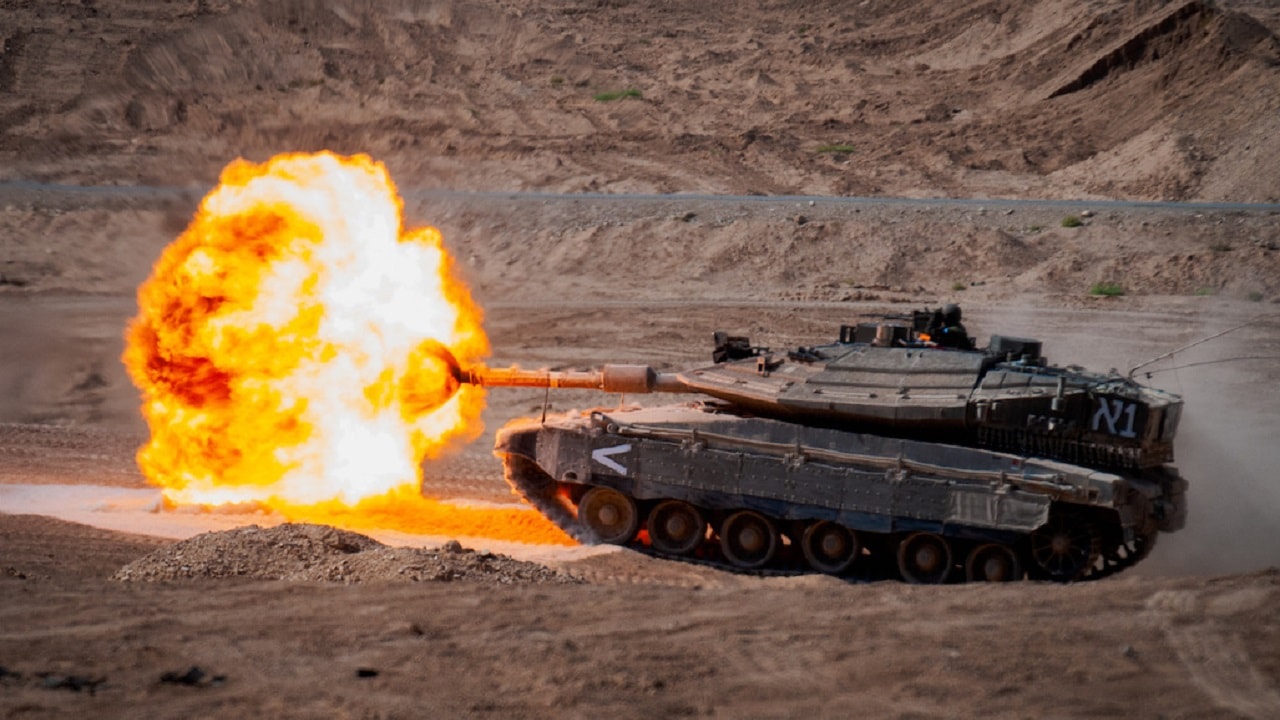
An Israeli Defense Forces Merkava Mark 4 tank fire 120mm canon shell.
International Distrust
The return of Donald Trump to the White House threatens to send a shudder through international society. For various reasons, global leadership may not have loved Joe Biden, but they found him to be predictable, and predictability goes a long way in a global hegemon. Donald Trump made unpredictability a hallmark of his first term, and there’s every reason to believe that Trump 47 will behave in the same way. Trump’s transactional approach wins him friends in certain parts of the globe – especially in authoritarian corners where there is a de-emphasis on procedure and human rights – but it also opens up tremendous uncertainty.
Concerning the structures of international trade, the rest of the world needs to come to some rapid conclusions about whether to take Trump literally or seriously. Trump’s threat to trade also represents a threat to the economic security and stability of most of the world. Trump may value the fear he creates, but he will also need to develop a degree of trust to build stable relationships with friends and competitors.

President of the United States Donald Trump speaking with supporters at a “Make America Great Again” campaign rally at Phoenix Goodyear Airport in Goodyear, Arizona.
Venezuela
Venezuela’s instability continues to unsettle Latin America. An election that most observers regarded as fraudulent returned President Nicolas Maduro to power but did not settle any critical political questions affecting the country. The ongoing economic and political crisis has driven a sense of chaos that has resulted in massive migration to the United States and to other parts of Latin America. Sanctions imposed by Trump 45 did not result in a collapse of Maduro’s government but did drive economic hardship that, in turn, drove emigration. A half-hearted coup attempt failed and further poisoned Washington-Caracas relations.
Venezuela enjoyed some sanction relief during the Biden administration, largely because the US could not afford to harshly sanction Iran, Russia, and Venezuela simultaneously. It is unclear whether Trump will be tempted to make another effort to destabilize the Maduro regime. Still, if he does, and such an effort has support within his coalition, he could be inviting chaos in America’s backyard, not to mention in global energy markets.
Liberal International Order?
Donald Trump is not in any sense a liberal. During his first term he expressed a distinct level of hostility towards what we normally regard as the “liberal international order,” the set of rules, laws, norms, and institutions that structure modern international politics. Indeed, Trump has set himself at the head of a right-wing, populist, anti-globalist cadre of leaders that has fixed the liberal international order directly in its sights.
And yet Trump knows that at least some of the liberal international order benefits the United States. The US-dominated financial system is essential to his domestic and foreign policy agendas. Similarly, Trump has attempted to leverage the “underground empire” of legal and regulatory tools to influence and coerce the behavior of friends and enemies alike. And many within his administration understand, rhetoric aside that the institutions that structure global politics were built by the United States and, by and large benefit the American public. Determining what of the liberal international order to save, what to reform, and what to destroy will be key to the success of Trump’s foreign policy.
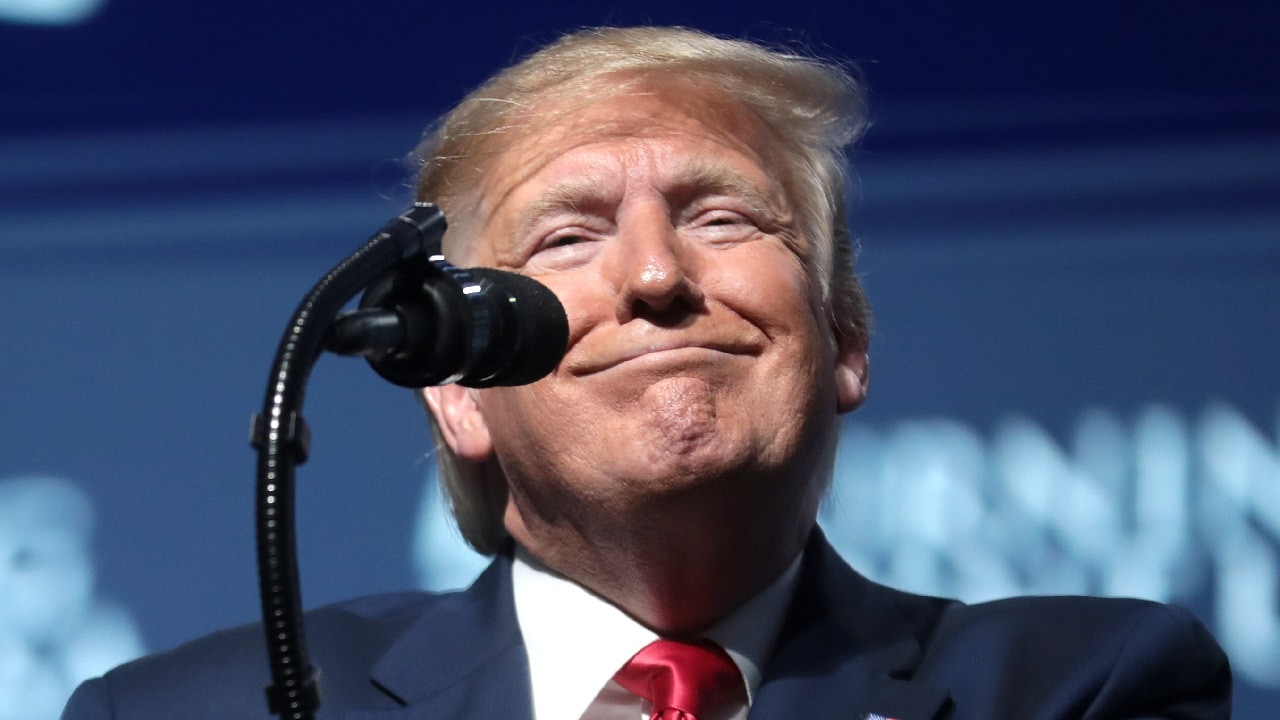
President of the United States Donald Trump speaking with attendees at the 2019 Student Action Summit hosted by Turning Point USA at the Palm Beach County Convention Center in West Palm Beach, Florida.
What Will Donald Trump Do?
Trump 45 did not understand foreign policy, did not understand how to deal with half the leaders he met, and did not know how to put together a foreign policy team. Trump 47 has the benefit of having experienced the failures of the first term. Unfortunately, his foreign policy and national security teams do not inspire confidence. Still, a commitment to loyalty over competence may pay off if Trump’s vision is sufficiently strong and his attention tightly focused. Whether Trump can maintain that vision and focus is an entirely different question.
About the Author: Dr. Robert Farley
Dr. Robert Farley has taught security and diplomacy courses at the Patterson School since 2005. He received his BS from the University of Oregon in 1997, and his Ph. D. from the University of Washington in 2004. Dr. Farley is the author of Grounded: The Case for Abolishing the United States Air Force (University Press of Kentucky, 2014), the Battleship Book (Wildside, 2016), Patents for Power: Intellectual Property Law and the Diffusion of Military Technology (University of Chicago, 2020), and most recently Waging War with Gold: National Security and the Finance Domain Across the Ages (Lynne Rienner, 2023). He has contributed extensively to a number of journals and magazines, including the National Interest, the Diplomat: APAC, World Politics Review, and the American Prospect. Dr. Farley is also a founder and senior editor of Lawyers, Guns and Money.

 Conservative
Conservative  Search
Search Trending
Trending Current News
Current News 